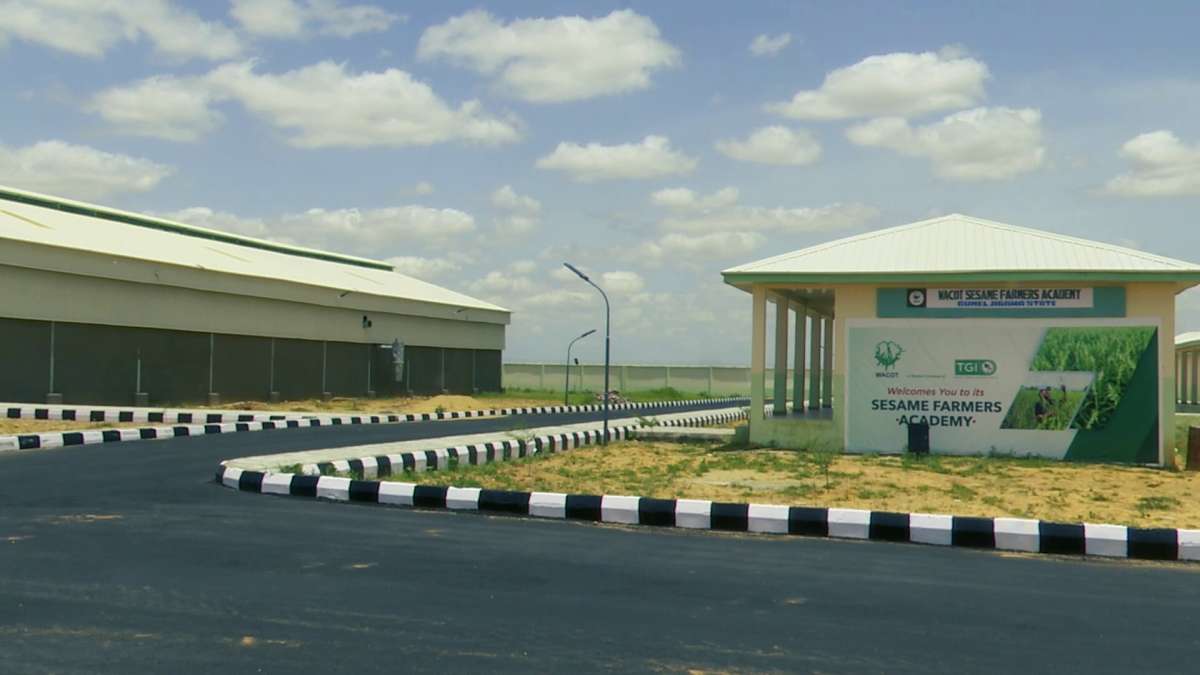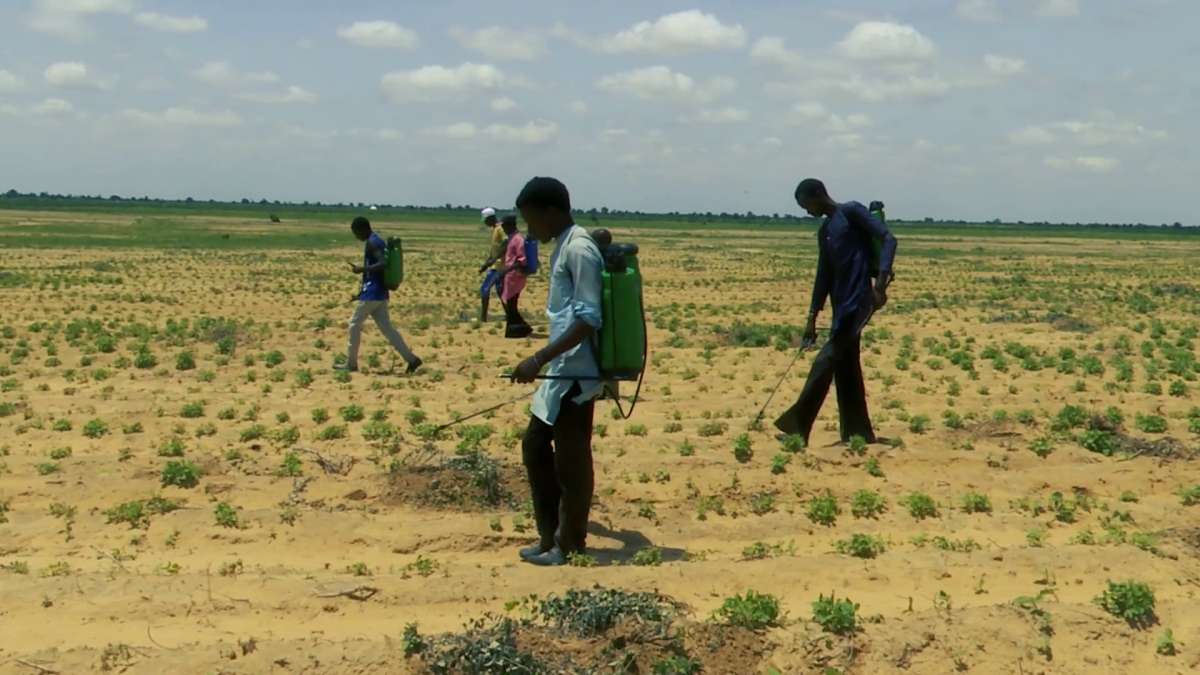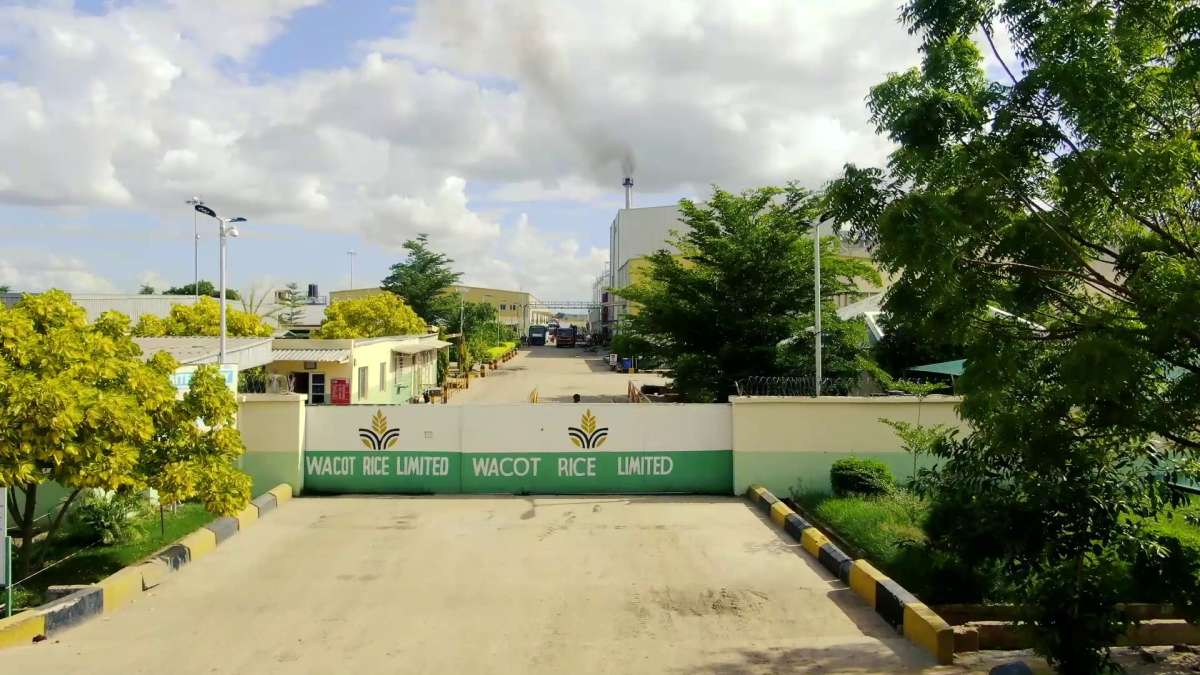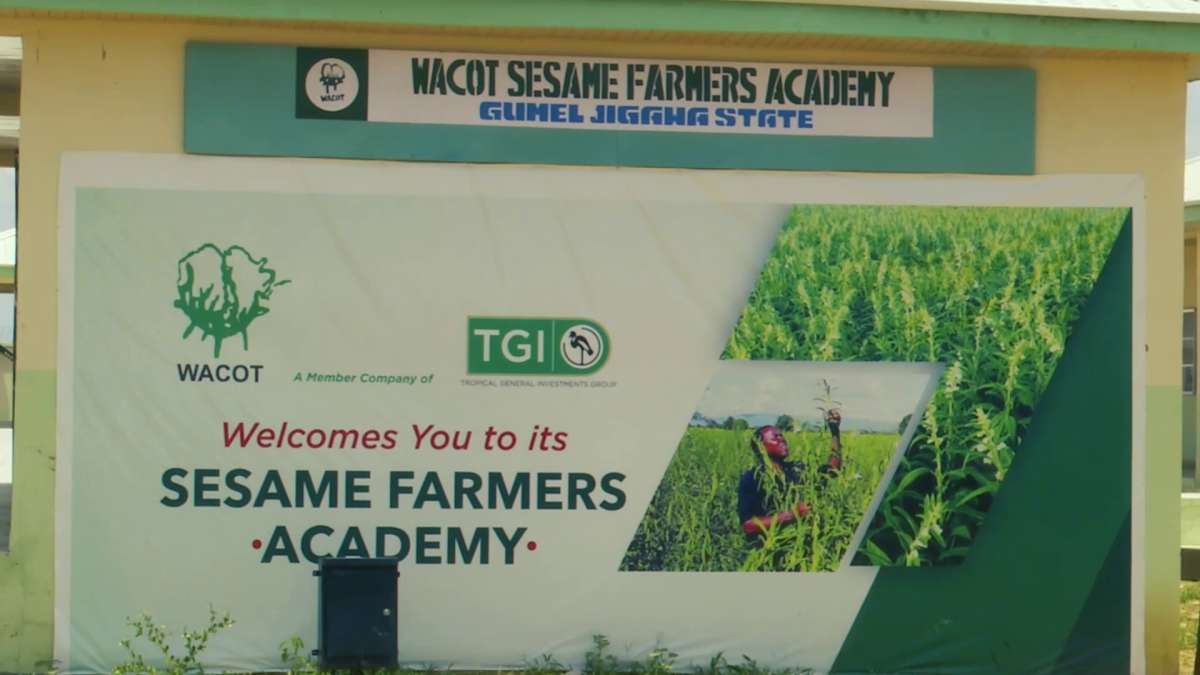The footprints of the TGI revolution in the agricultural sector are also visible in Jigawa State where sesame is a major crop.
In 2016, WACOT began acquiring sesame from farmers under a trial out-grower programme which has since been expanded and is now benefitting more than 10,000 farmers in eight local government areas of Jigawa State.
The Branch Manager, WACOT Limited Jigawa, Kamilu Abbas Gumel, explained that the WACOT project for sesame started with a demo plot of about 2 hectares, before the take-off of the initiative fully in 2017 with more farmers.
In the past seven years, WACOT has given farmers over 1 billion Naira in credit financing to cover inputs such as fertilisers, agrochemicals and seeds.
Five centres in Jigawa State are involved in the out-grower programme: Yalawa, which includes the Gagarawa and Kaugama local government areas of Hadejia Emirate, with a total of 3000 farmers cultivating 6000 hectares of sesame; Dan Madai, which includes the Ringim and Taura local government areas of Ringim Emirate; Medu, which has 2000 farmers and 4,000 hectares; and Kagarawa and Babban Sarai with a total of 4500 farmers and 9000 hectares respectively.

One of the farmers, Dauda Muhammad Medi, told Daily Trust that with support from the WACOT out-grower initiative, many challenges previously experienced have been eliminated.
“Before now, if I cultivated one hectare I would get two bags of sesame and one bag of guinea corn but with the training we received from WACOT agents, I harvested five bags of sesame and three bags of guinea corn from the same hectare of land.”
“Also, before now we experienced difficulty in finding the market to sell off our produce, except in places like Gujungu or Gumel but when WACOT came, they buy from us, even at a far better price than the market,” Dauda explained.
To actualize its vision of self-sufficiency in sesame production, WACOT established a sesame farmers’ academy in the Mele neighbourhood of Gumel Local Government Area in 2020, with the aim of training sesame farmers across the country.
Head of the WACOT Sesame Academy, Bashari Dahiru, says the purpose is “to boost modern sesame farming, especially the organic sesame and the inorganic sesame farming in the neighbouring communities and the entire country.”

“The academy has improved the economic standard of the area and introduced modern farming techniques to the local farmers,” he added.
WACOT is investing a sizable sum in a Gumel-based enterprise that produces organically grown sesame. The project, which consists of a 450-hectare organic sesame farm, 50 hectares of drip irrigation land, a cleaning facility and warehouse, as well as a farmers’ academy, is now fully operational.
The WACOT Organic Farm Manager, Ibrahim Muhammad, said “The whole farm is about 511 hectares and it has been fenced round. We are yet to cultivate the entire land but we are engaging them (farmers) gradually. Right now, the place we farmed this year is above 200 hectares.”
The organic farm employs 200 women across the value chain, accounting for 56% of the total labour force. It currently has 81 hectares of arable land under cultivation with an average yield of 117kg per hectare per planting season.

As part of its corporate social responsibility, WACOT offers a number of social projects and supports farming communities by offering programmes for the young and women’s empowerment, water supplies, health camps, and training in the acquisition of new skills, among other things.
The Chairman of Gumel Local Government Area, Ahmed Rufai, in an interview with Daily Trust explained how WACOT supported the local government in providing relief for the communities in times of need.
“Last year in Gumel Local Government Area, we were in a financial crisis, and we were experiencing water scarcity in various communities. I wrote a letter requesting WACOT to help us solve the community’s problem.”
According to Ahmed, the company approved N10 million with immediate effect to purchase some items.
Currently, WACOT is collaborating with over 70,000 out-grower farmers in Nigeria through different value chains including cotton, soybeans, rice, sesame and maize. More than 150 demonstration farms have been established to promote good agricultural practices to mechanise the production of cocoa, maize, rice, cotton and soybeans.

 Join Daily Trust WhatsApp Community For Quick Access To News and Happenings Around You.
Join Daily Trust WhatsApp Community For Quick Access To News and Happenings Around You.
